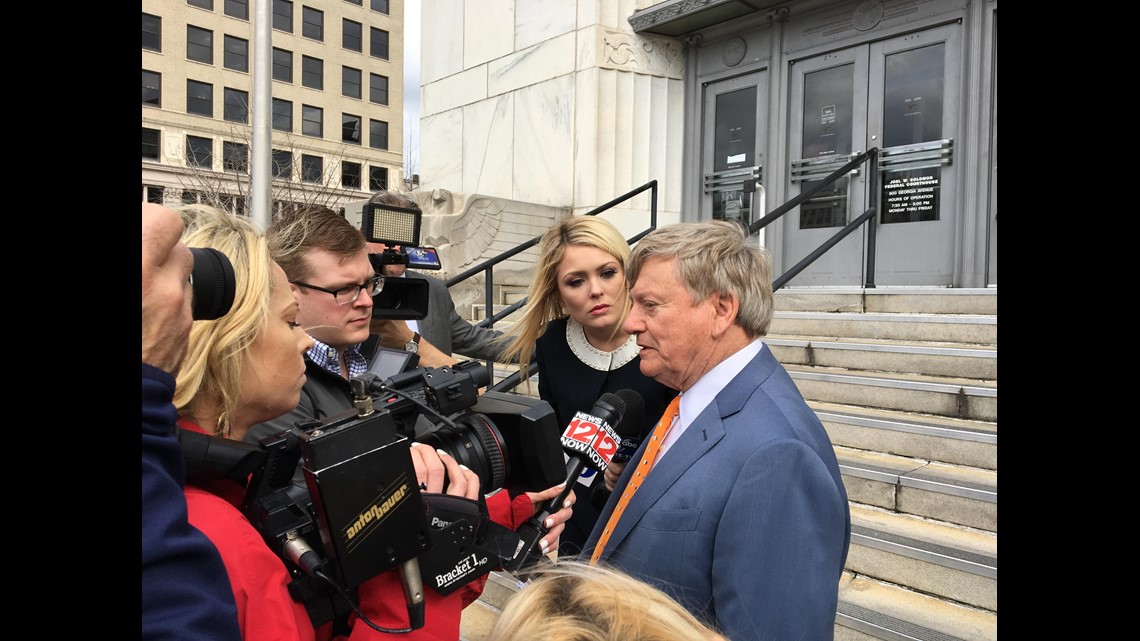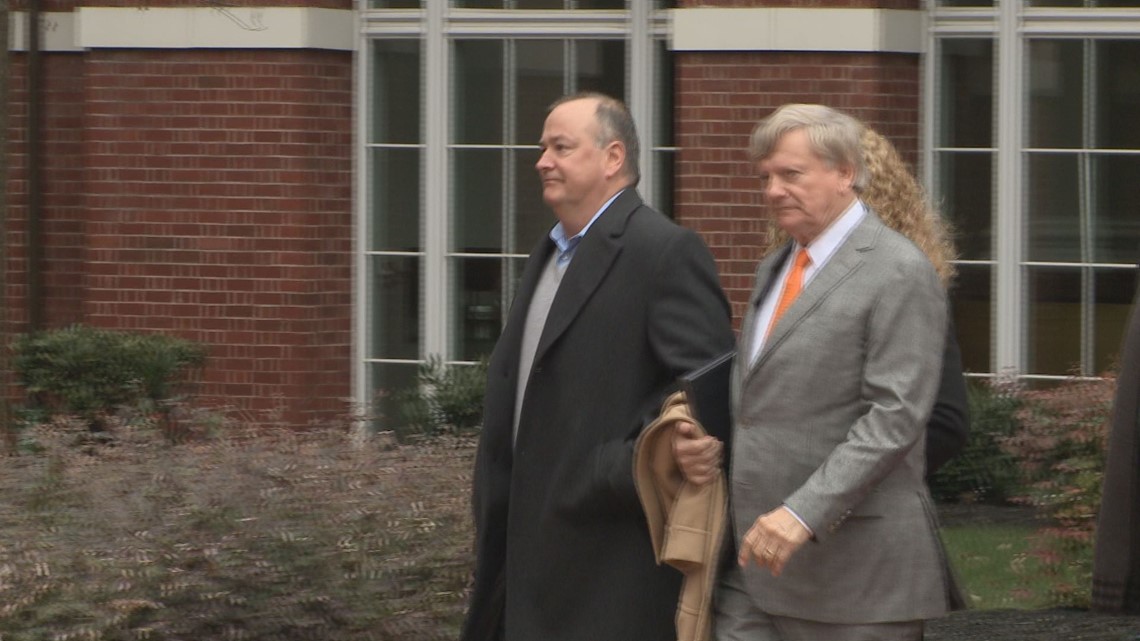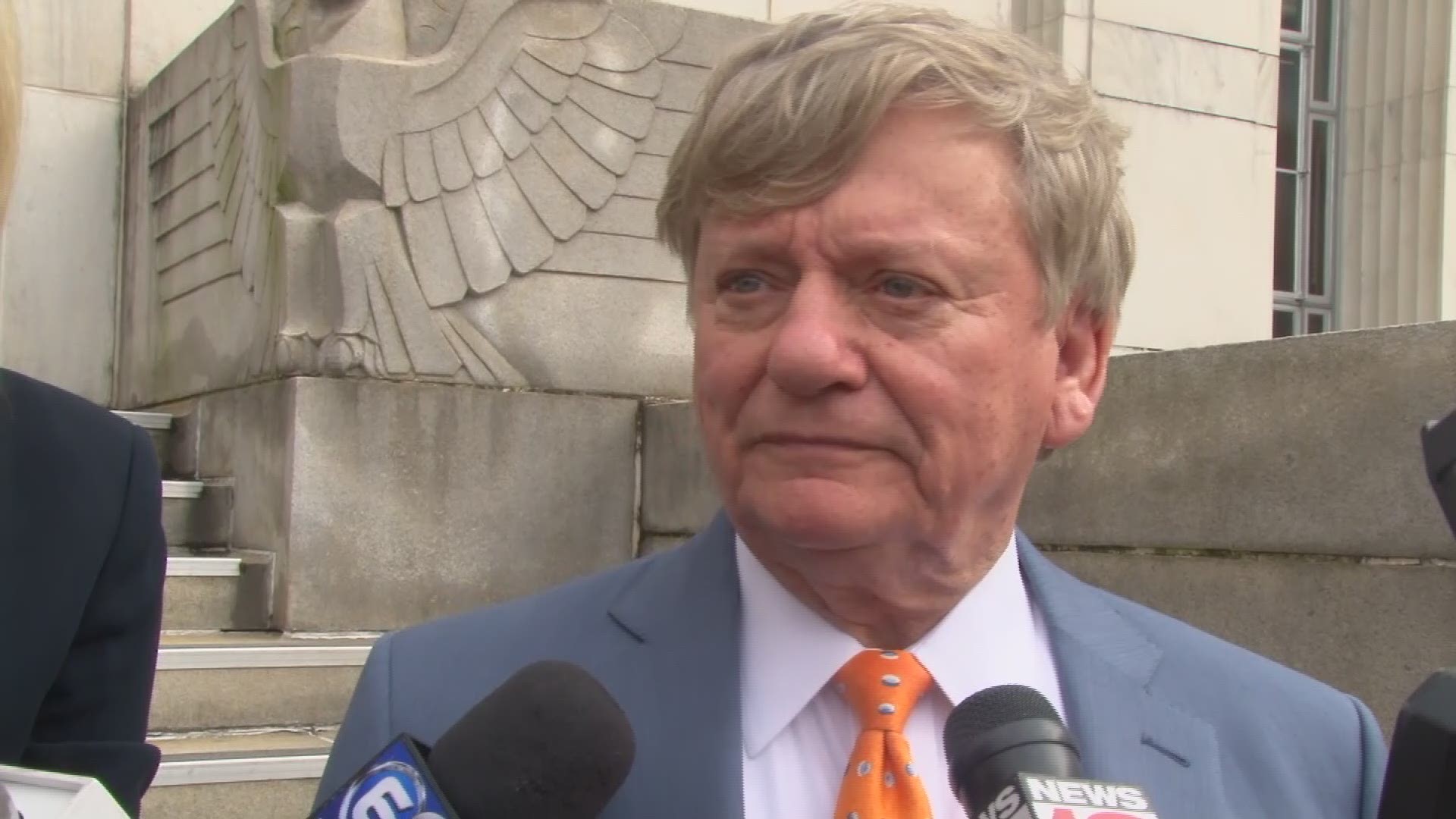Knoxville — The former president of Pilot Flying J, facing years in federal prison for his role in a diesel fuel rebate scheme, is turning to new legal help.
Mark Hazelwood alleges in U.S. District Court filings in Knoxville that lead counsel Rusty Hardin of Houston, Texas, didn't do a good job, forgetting in fact to formally file a request for a new trial after Hazelwood was convicted in February by a jury in Chattanooga.
"This was a significant failure," Knoxville attorney Bradley L. Henry writes in a May 25 motion.
Hazelwood is supposed to be sentenced in August in the first of a series of sentencing rounds of former Pilot employees convicted in the sales scam. Fourteen former employees previously have pleaded guilty, and Hazelwood and two co-workers were convicted at trial Feb. 15.
Hazelwood faces an estimated 10 to 20 years in prison.
Related: 3 Pilot employees convicted at trial
In addition to Henry in Knoxville, Hazelwood has hired a legal team that works in New York City.
He hoped to travel Wednesday to the city to meet with them, records show, but U.S. District Judge Curtis L. Collier squashed that bid.


Collier, in an order Tuesday, wrote that Hazelwood could just as easily meet with the lawyers by video or telephone. Federal prosecutors had opposed the trip.
Hazelwood, having made millions of dollars while working for Pilot, is considered a flight risk and is under house arrest. His travel is limited to Tennessee pending sentencing.
Trial yields convictions
After months of testimony, Hazelwood was convicted Feb. 15 of wire fraud, conspiracy to commit mail/wire fraud and witness tampering. The government alleged he led a team that worked together to cheat some diesel fuel customers of promised rebates.
Scott Wombold, a former Pilot vice president, was found guilty on one count of wire fraud, and Heather Jones, who worked in direct sales at Pilot at Knoxville headquarters was convicted of one count of conspiracy to commit mail/wire fraud.
During the trial, the government presented secret tape recordings made by a Pilot employee working with the government that showed Hazelwood engaged in racially charged conversation with other executives at a gathering at a private home.
The government entered the tapes as evidence to counter defense claims that Hazelwood was a good steward of Pilot's image. Hardin objected, arguing such evidence was so prejudicial it would bias the jury against his client.
On the recordings, Hazelwood also mocked the Cleveland Browns football team, which Pilot principal Jimmy Haslam owns, as well as Cuyahoga County, Ohio. He could also be heard asking for someone to play an early 1980s David Allen Coe song that features repeated racial epithets.
Hardin vowed to appeal Collier's decision to let the tapes in.
First things first
Henry argues in his May 25 motion that Hardin failed within 14 days of the verdict to formally seek a new trial for his client.


Because of neglect, he argues he should now be able to seek a new trial even though the deadline has passed.
"Failure to discuss with Mr. Hazelwood the merits of, and possible bases for, (a new trial request) was a significant oversight by trial counsel," Henry writes.
A new trial would delay Hazelwood's scheduled sentencing later this summer.
First, however, Hardin and his team in the case will have to properly file paperwork to bow out, according to U.S. Magistrate Judge Bruce Guyton.
In an order filed Tuesday, Guyton said Hardin's withdrawal hasn't yet been properly made as the rules dictate.

